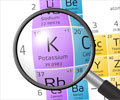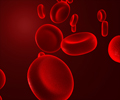- Hypochloremia - Essential Emergency Medicine, Medical emergency Steven W.Salyer, PA-C,Chris R.McNeil, in, 2007
- Serum Chloride - (https://www.ncbi.nlm.nih.gov/books/NBK309/ )
- Understanding about Chloride - (https://labtestsonline.org/understanding/analytes/chloride/tab/test/)
What is Hypochloremia?
Hypochloremia is a type of electrolyte imbalance, which results in low chloride levels in the body. Electrolytes are chemicals that regulate important physiological functions. Examples of electrolytes are sodium, bicarbonate, potassium, calcium, and magnesium.
When dissolved in water, electrolytes separate into positively and negatively charged ions. Chloride is a negatively charged ion that works with other electrolytes, to help regulate the amount of fluid in the body and maintain the acid-base balance (pH). Proper exchange of these ions in and out of cells is vital for smooth functioning of nerve and muscle cells.
The normal range of chloride in healthy humans should be between 97-107 milliequivalents per liter mEq/L or 97-107 millimoles per liter (millimol/L). The main function of the chloride electrolyte is to maintain fluid balance in the body.
What are the Causes of Hypochloremia?
Hypochloremia is usually caused by excess use of loop diuretics, nasogastric suction, vomiting or diarrhea due to small bowel abnormalities, and loss of fluids through the skin occurring as a result of trauma (e.g., burns).
Kidney diseases that cause loss of salt (sodium and chloride) such as chronic renal failure and post obstructive diuresis also cause hypochloremia and hyponatremia (low sodium). A decreased level of urine chloride can be seen with
When associated with metabolic alkalosis (decreased blood acidity) it is often due to vomiting. It can be associated with chronic respiratory acidosis and cystic fibrosis.
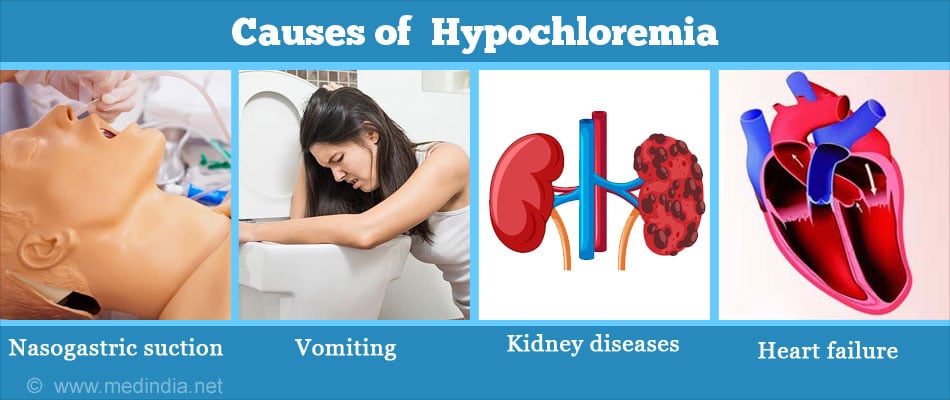
What are the Signs and Symptoms of Hypochloremia?
There are no specific signs or symptoms of low chloride level, unless they present with very high or low level of chlorine. Symptoms may include the following:
- Prolonged Vomiting And Diarrhea
- Weakness
- Difficulty Breathing (Respiratory Distress)
- Hypotension (Low Blood Pressure)
- Tachycardia (Increased Pulse Rate)
- Dehydration Symptoms
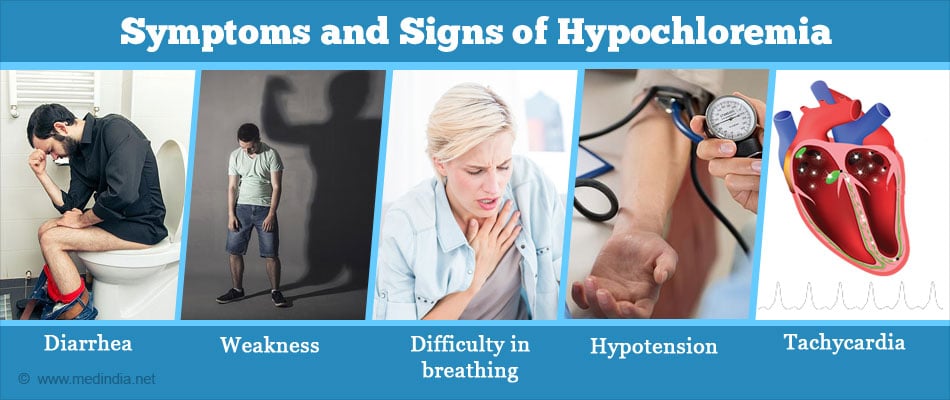
How do you Diagnose Hypochloremia?
The diagnosis of hypochloremia is made on the basis of the patient's history of the disease or medication causing the imbalance, along with the lab assessment of chloride values. A chloride blood test is carried out to detect abnormal concentrations of chloride. As hypochloremia co-exists with other electrolyte imbalances such as hyponatremia,
If an electrolyte imbalance is detected during the tests, your physician may recommend electrolyte testing at regular intervals to monitor the effectiveness of treatment, until the results are within the normal range. If an acid-base imbalance is suspected, they may consider conducting tests for blood gases to further evaluate the severity and cause of the imbalance. Occasionally, a urinary chloride test is performed to assess the cause of loss of salts, such as in cases of excessive vomiting, dehydration, or use of diuretics where urinary chloride would be very low. Excess of certain hormones such as aldosterone or cortisol can also affect electrolyte levels.
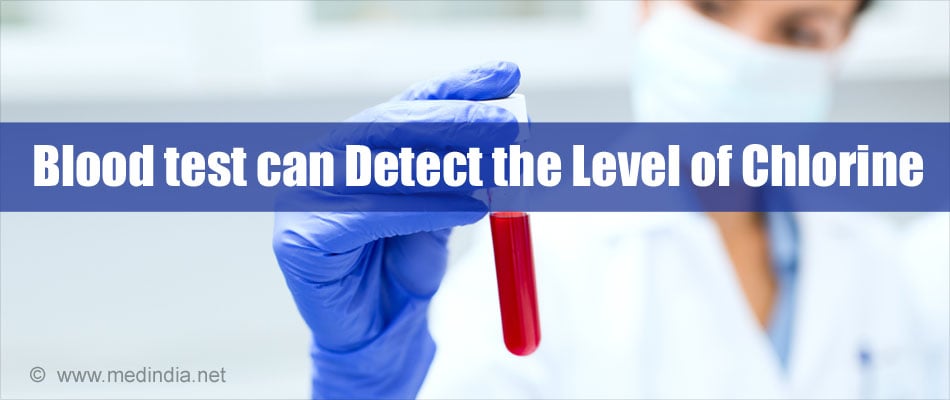
How do you Treat Hypochloremia?
Treatment is aimed at therapy for the underlying disorder. Patient is usually administered diuretics, or replacement of electrolytes with chloride salts to compensate for the loss of chloride from the body.
Nonsteroidal anti-inflammatory drugs (NSAIDs) are used in patients when the condition is caused due to a particular inherited condition (Bartter syndrome) that causes an imbalance in electrolytes. Hydrochloric acid (HCl) and carbonic anhydrase inhibitors may be used in some acute situations.
Health Tips
If you are diagnosed with hypochloremia, always remember to keep yourself well hydrated. Drink plenty of fluids with salt, unless you are instructed otherwise such as in chronic renal diseases. Avoid intake of caffeine and alcohol, as these may cause further electrolyte imbalances.


